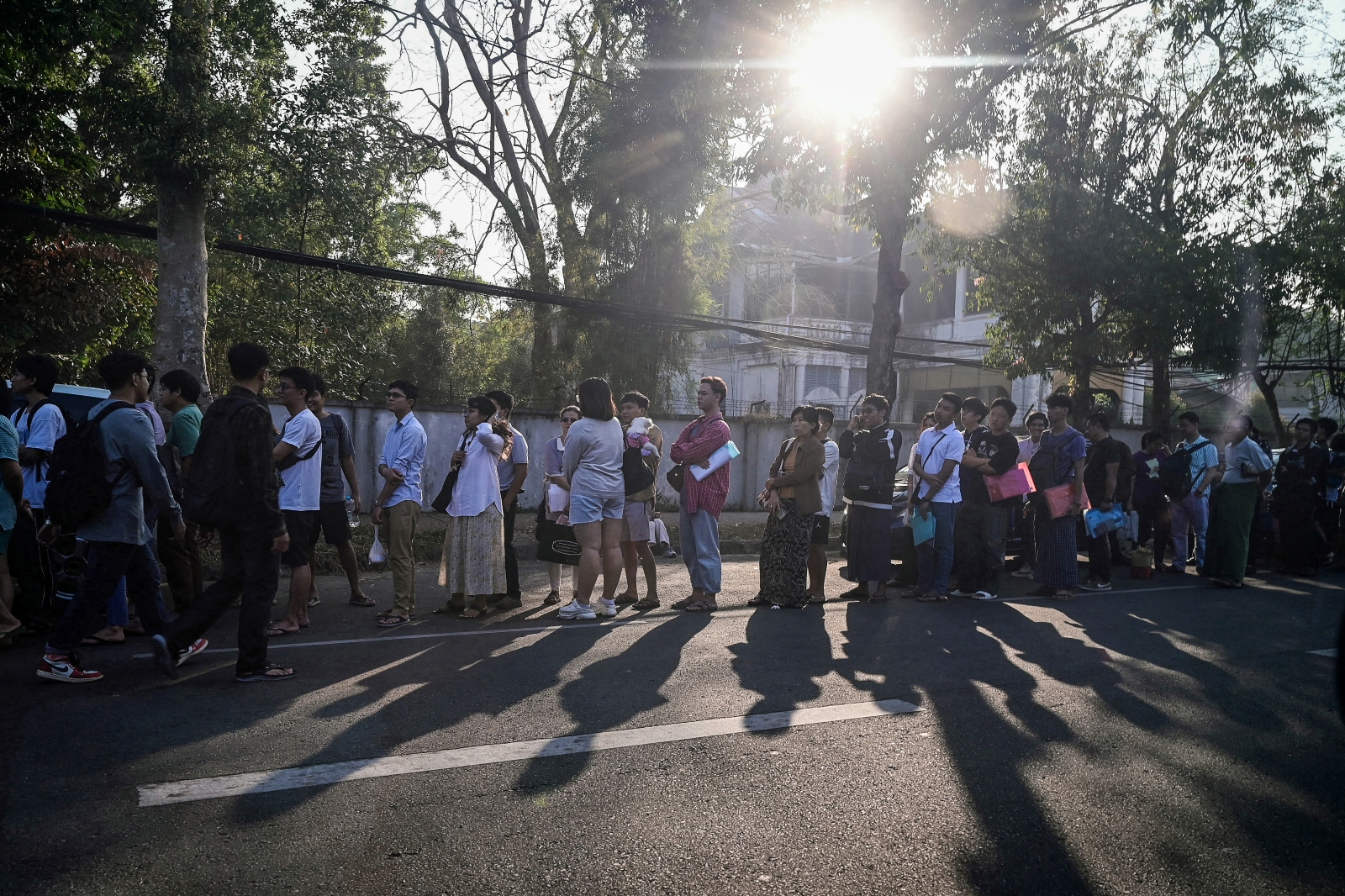Mitch McConnell says he supports democracy in Burma, but he has been slow to act, and his prominent position in shaping policy means he is dragging the US response down with him.
By ME ME KHANT
Last month, US Senate Republican Leader Mr Mitch McConnell issued a press release supposedly reaffirming his commitment to fighting for democracy in Burma.
“The people of Burma deserve our full support in their long struggle toward self-government and democracy. Along with Kentucky’s vibrant communities from Burma, I will continue to fight for that goal,” he said after a meeting with US ambassador Mr Thomas Vajda.
As a Burmese advocate and former Kentucky resident, I wanted to believe this statement was genuine. Yet, knowing how McConnell’s office has stalled legislation in Congress for months, undermining advocacy efforts, all I see are performative, empty words.
Given McConnell’s position as Republican Senate leader and a longstanding champion of Burma, many, including the Biden administration, looked to him to shape America’s response to the 2021 military coup. Yet McConnell has balked at pledging his support for the BURMA Act of 2021, ensuring that the bill remains languishing in Congress.
Introduced in October 2021, the BURMA Act seeks to hold the Burmese military accountable for its atrocious crimes and sanction junta-controlled entities and businesses. It would also provide US$220 million per year in humanitarian aid from 2023-2027, in addition to US$50 million in support for independent media and other pro-democracy initiatives. It authorises a new position at the State Department, a Special Coordinator for Burmese Democracy, to streamline the US multilateral and interagency efforts on Burma. It would be the most consequential legislation on Burma since the Burmese Freedom and Democracy Act in 2003, which McConnell himself introduced.
Although the bill passed the House recently, it has been stalled in the Senate for many months due to a lack of bipartisan support. While it has 26 co-sponsors from the Democratic Party, it doesn’t have a single Republican supporter.
It has been well over a year since the Burmese military unlawfully staged a coup against a democratically elected civilian government, upending the fragile democratic transition that began only a decade prior. When the people of Burma responded with an overwhelming Civil Disobedience Movement and mass demonstrations nationwide, the military resorted to what they know best – a reign of terror characterised by arbitrary arrests, brutal torture and indiscriminate killings.
As of April 15, 2022, according to the Assistance Association for Political Prisoners, a total of 1,756 civilians have been confirmed to have been killed and over 10,000 political prisoners, including my friends and fellow advocates, are currently being detained. Junta troops continue to unleash a campaign of terror that includes burning civilian homes to the ground across the country’s heartland, reportedly destroying 100 villages this year alone.
Many groups, including Burmese diaspora activists and pro-democracy forces, believe the BURMA Act to be an extensive policy framework that can put tangible pressure on the murderous regime and bring much needed support to the people of Burma.
As the Republican leader in the Senate, McConnell could easily galvanise support within his party, especially considering his decades of experience on Burma issues. As a close ally and friend of deposed civilian leader Daw Aung San Suu Kyi, McConnell even stood by her as the rest of the world watched in horror while she defended the military’s genocide of Rohingya Muslims. Now that the same military has imprisoned Aung San Suu Kyi, McConnell has seemingly abandoned her.
He was the original architect of the economic sanctions against Burma in the 1990s and has pushed for numerous Senate resolutions and other pieces of legislation to pressure the Burmese military and support the democracy movement through the years. With this in mind, we remain puzzled as to why he has yet to support the BURMA Act of 2021.
Kentucky residents, including members of my advocacy group Students for Free Burma (SFB), have asked him the same question and pleaded for his support repeatedly. Each time, he has responded that his commitment to Burma remains steadfast. He often defends himself by pointing to his bipartisan Burma Amendment to the National Defense Authorization Act (NDAA), claiming that the amendment will lay the groundwork to target the junta and support the pro-democracy forces.
However, the truth is, compared to the BURMA Act of 2021, the two-page NDAA amendment is only a drop in the bucket. While it offers some progress by allowing Congress to ask tough questions to the Biden administration, it does not authorise concrete actions nor provide real, tangible support like the BURMA Act is designed to do. Moreover, in my organisation’s experience, McConnell’s office remains elusive even for scheduling a briefing on the NDAA amendment. All of this leaves us wondering if his commitment to Burma has begun to wane.
For 14 months and counting, amid unimaginable horrors and cruelties, my brothers and sisters back home continue marching on the streets and engaging in resistance activities daily. My mother, who is a political columnist, continues to write and speak out against the oppressive regime while living in hiding. We in the diaspora communities have tried to support them from afar, including by calling on Congress to pass the BURMA Act.
If Leader McConnell is genuine about his support for Burma, he has the power to do something about it by bringing in Senate Republicans to co-sponsor and pass the BURMA Act. By not pledging his support, he has instead become a gatekeeper delaying decisive actions against the Burmese military. Leader McConnell will have to follow through with real actions for us to take him at his word. The last thing Burma needs is more empty statements.
Me Me Khant is a Burmese poet, activist and former student union leader from Myanmar. She currently serves as the executive director and co-founder of Students for Free Burma (SFB). She is also a graduate student in Master’s in International Policy at Stanford University and Knight-Hennessy Scholar.







